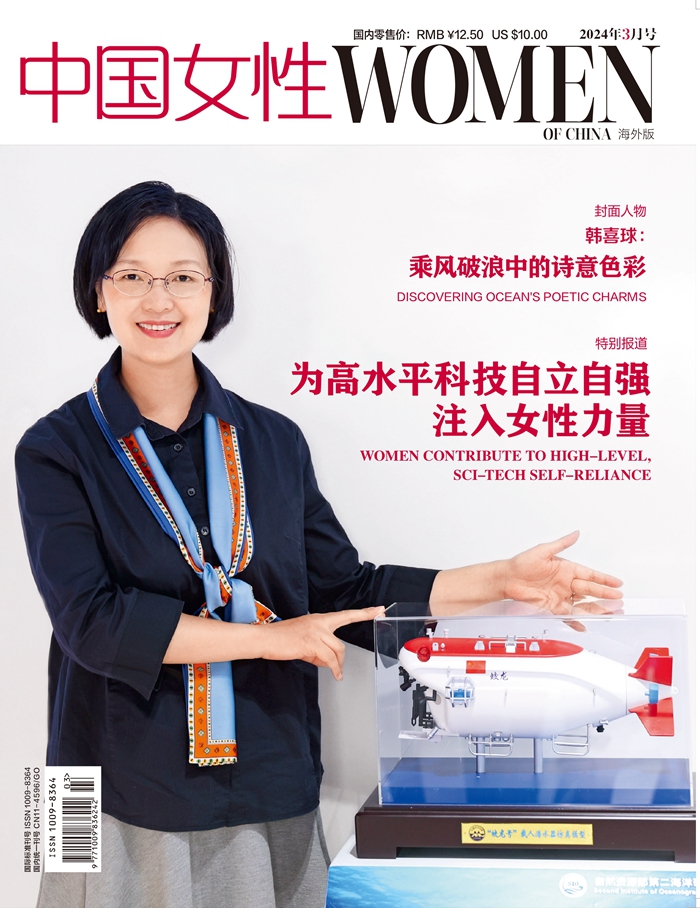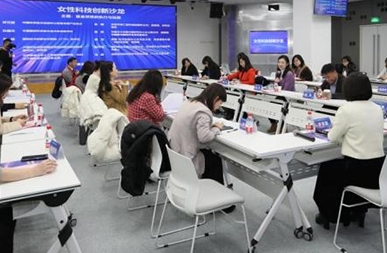Video Sharing Platforms Become New Way for China's Netizens to Gain Knowledge
With the number of online video users in China reaching 975 million, online video sharing platforms have become an important medium for Chinese netizens to acquire new knowledge in a large variety of areas.
 |
| A student watches an online learning video at home that shares new knowledge. [Xinhua/Xu Yu] |
Video-streaming platform Bilibili has launched a knowledge-sharing video section covering multiple areas such as science, law, psychology, humanity, history, finance and design. On China's short-video sharing platform Douyin, videos with the hashtag "gaining knowledge" have been played 556.2 billion times; while another short-video sharing platform Kuaishou has invited professional economists, painters and writers to join its knowledge-sharing livestreaming sessions, which have gained over 70 billion views.
Chinese tech giant Tencent and the China Soong Ching Ling Foundation, a charitable foundation, jointly launched a public welfare program, inviting scientists that included Qi Faren, an academician with the Chinese Academy of Engineering and the former chief designer for China's Shenzhou spaceships, and Wang Yifang, a high-energy physicist who led the building of several of China's science facilities, to give online lectures on topics that young children are interested in like manned spaceflight projects and lunar exploration. Integrating cartoons and illustrations, their lectures are both professional and interesting, receiving many positive comments from viewers.
Many teachers from some of the top universities in China have joined the knowledge-sharing fever, receiving huge attention from younger Internet users. For instance, Professor Dai Jianye from the Central China Normal University in Wuhan, capital of central China's Hubei Province gave lectures on traditional Chinese poetry. So far, he has attracted over 6.2 million followers on his Douyin account, receiving more than 22.53 million likes. "He's so humorous and I'd like to watch his videos again and again," read one comment.
Besides, a student surnamed Zhang from east China's Shandong Province preparing for China's National Judicial Examination said that "many courses of well-known law professors are available online."
"Thanks to livestreaming and short videos, knowledge has transcended the borders of time and space. Therefore, a new teaching scenario has taken shape," observed Wang Yanlong, a professor with the College of Literature and Journalism of Sichuan University in Chengdu, capital of southwest China's Sichuan Province.
Wang added that compared to conventional ways of teaching, online knowledge-sharing is more flexible and allow learners to acquire knowledge at a lower cost. The teachers and learners can communicate online, while the latter can also spread knowledge by forwarding the videos to viewers.
A challenge for disseminators of knowledge using this new mode is to enable online learners, whose ages and academic backgrounds vary greatly, to understand the knowledge being conveyed. "I believe the key is to explain the knowledge with language that is easy to understand, so that viewers will enjoy themselves when watching the videos and happily join in on discussions," said Zhao Bin, a professor with Fudan University in Shanghai, adding that the feedback and the likes from the viewers are a driving force for him.
To ensure the sound development of online knowledge-sharing, experts suggest improving the feedback channels of the viewers, forging a stronger team of disseminators of knowledge, as well as providing a larger number of high-quality videos. Besides, efforts should also be made to encourage more universities and research organizations to launch their own online courses.
(Source: People's Daily Online)
Please understand that womenofchina.cn,a non-profit, information-communication website, cannot reach every writer before using articles and images. For copyright issues, please contact us by emailing: website@womenofchina.cn. The articles published and opinions expressed on this website represent the opinions of writers and are not necessarily shared by womenofchina.cn.








 WeChat
WeChat Weibo
Weibo 京公网安备 11010102004314号
京公网安备 11010102004314号